- Browse
- Food Science
Food Science Courses
Food science courses can help you learn about food safety, nutrition, sensory evaluation, and food processing techniques. You can build skills in recipe formulation, quality control, and understanding food chemistry. Many courses introduce tools like statistical software for analyzing taste tests, laboratory equipment for testing food properties, and food modeling software to predict shelf life, allowing you to apply these skills in real-world food production and innovation.
Popular Food Science Courses and Certifications
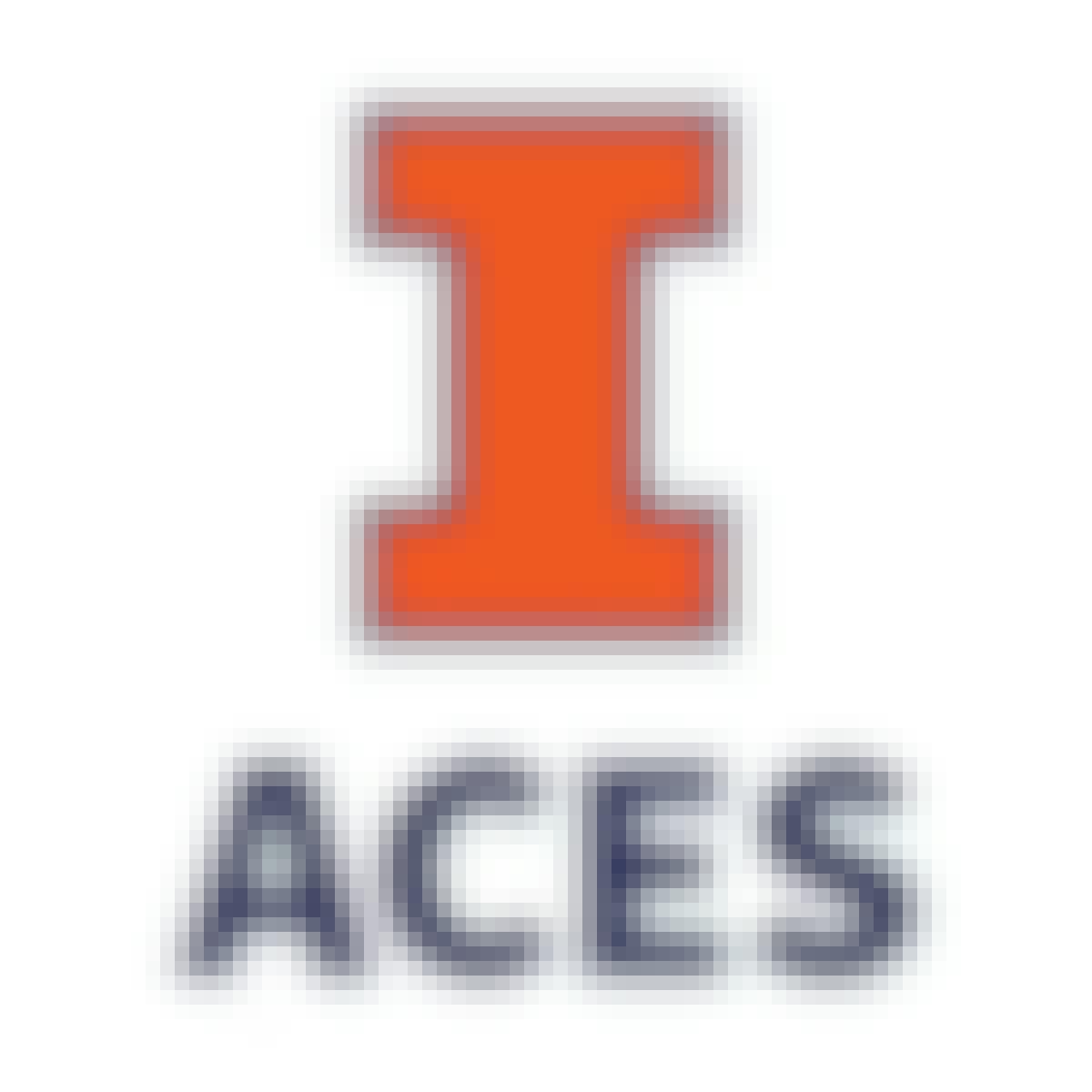 Status: NewNewStatus: Free TrialFree TrialU
Status: NewNewStatus: Free TrialFree TrialUUniversity of Illinois Urbana-Champaign
Skills you'll gain: Health Equity, Health Disparities, Social Determinants Of Health, Nutrition and Diet, Good Manufacturing Practices, Food Quality Assurance And Control, Nutrition Education, AI Personalization, Food Safety and Sanitation, Policy Development, Clinical Nutrition, Regulatory Affairs, Public Health, Regulatory Compliance, Health Policy, Health Informatics, Advocacy, Health Assessment, Health Technology, Microbiology
4.5·Rating, 4.5 out of 5 stars46 reviewsIntermediate · Specialization · 3 - 6 Months
 Status: Free TrialFree Trial
Status: Free TrialFree TrialSkills you'll gain: Product Testing, Safety Standards, Personal Care, Chemistry, Microbiology, Biology, Materials science, Sustainability Standards, Product Development, Regulatory Compliance
4.7·Rating, 4.7 out of 5 stars335 reviewsBeginner · Course · 1 - 3 Months
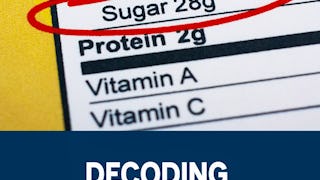 Status: Free TrialFree TrialN
Status: Free TrialFree TrialNNational Academy of Sports Medicine
Skills you'll gain: Nutrition and Diet, Nutrition Education, Nutritional Assessment, Food Quality Assurance And Control
4.8·Rating, 4.8 out of 5 stars13 reviewsBeginner · Course · 1 - 4 Weeks
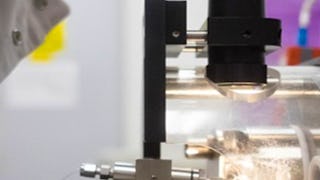 Status: PreviewPreviewU
Status: PreviewPreviewUUniversity of Manchester
Skills you'll gain: Biotechnology, Sustainable Technologies, Process Engineering, Molecular Biology, Chemical Engineering, Sustainable Engineering, Life Sciences, Biochemistry, Pharmaceuticals, Biomedical Engineering, Materials science, Scalability
4.7·Rating, 4.7 out of 5 stars3.6K reviewsBeginner · Course · 1 - 3 Months
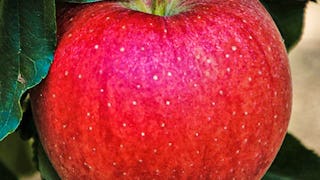 Status: Free TrialFree TrialS
Status: Free TrialFree TrialSStanford University
Skills you'll gain: Food and Beverage, Cooking, Sustainable Development, Nutrition and Diet, Cultural Diversity, Meal Planning And Preparation, Environment, Water Sustainability, Sustainability Standards, Compassion, Sustainable Technologies, Resourcefulness, Mindfulness, Climate Change Mitigation, Waste Minimization, Adaptability, Environmental Science, Behavioral Health, Self-Awareness, Pollution Prevention
4.8·Rating, 4.8 out of 5 stars605 reviewsBeginner · Specialization · 1 - 3 Months
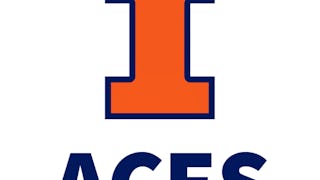 Status: Free TrialFree TrialU
Status: Free TrialFree TrialUUniversity of Illinois Urbana-Champaign
Skills you'll gain: Land Management, Risk Management, Real Estate, Legal Risk, Water Resource Management, Balance Sheet, Food and Beverage, Supply Chain, Environmental Social And Corporate Governance (ESG), Investments, Food Quality Assurance And Control, Risk Mitigation, Business Risk Management, Transportation, Supply Chain, and Logistics, Supply Chain Systems, Asset Management, Financial Analysis, Decision Making, Supply Chain Management, Consumer Behaviour
4.8·Rating, 4.8 out of 5 stars79 reviewsIntermediate · Specialization · 3 - 6 Months
 Status: Free TrialFree TrialD
Status: Free TrialFree TrialDDartmouth College
Skills you'll gain: Environment, Environmental Issue, Environmental Science, Demography, Energy and Utilities, Sustainable Development, Biology, Hydrology, Environmental Engineering, Water Quality, Nutrition and Diet, Oil and Gas, Electric Power Systems, Systems Thinking, Water Resource Management, Natural Resource Management, Sustainable Technologies, Physics, Climate Change Mitigation, Chemistry
4.7·Rating, 4.7 out of 5 stars435 reviewsBeginner · Specialization · 1 - 3 Months
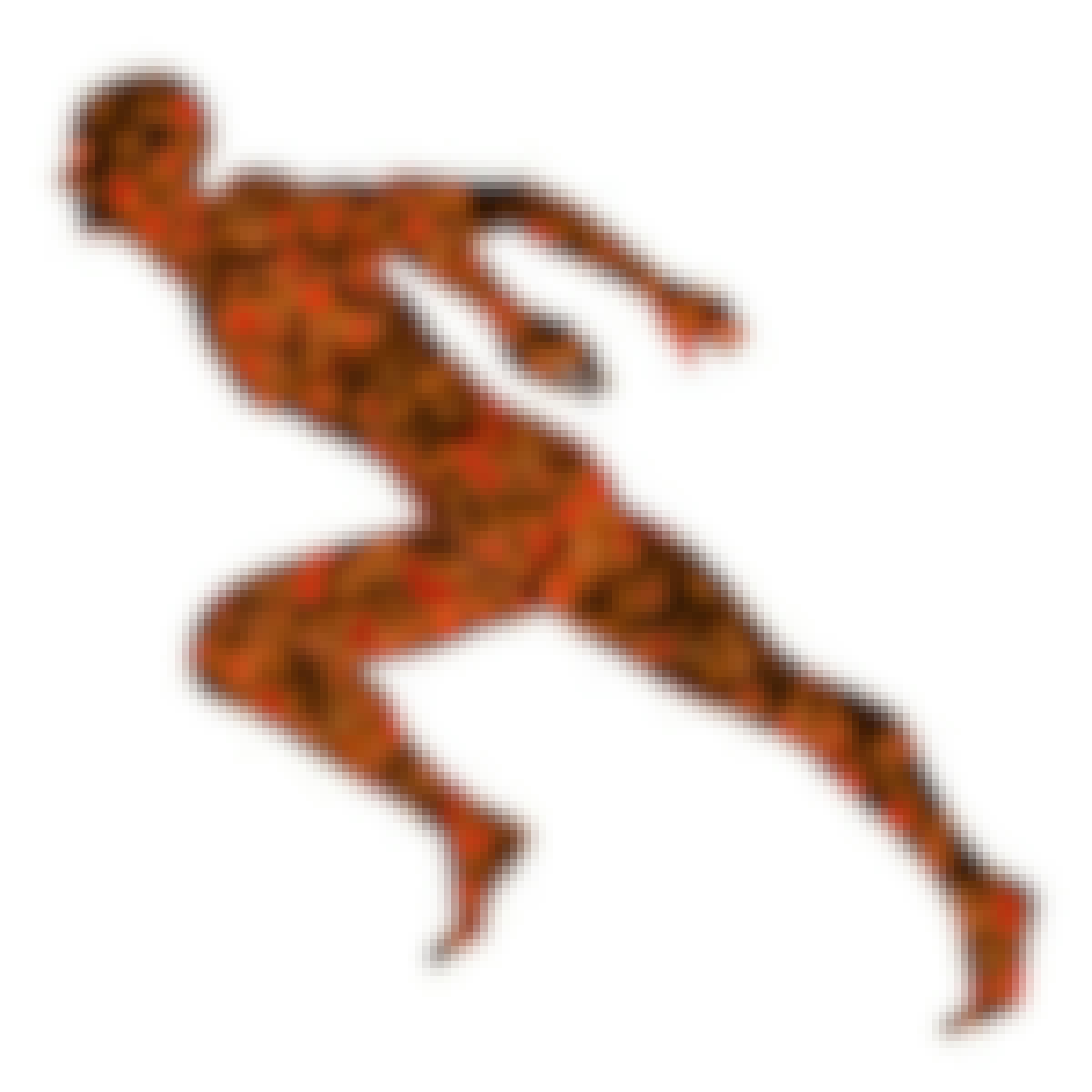 Status: PreviewPreviewU
Status: PreviewPreviewUUniversity of Colorado Boulder
Skills you'll gain: Exercise Science, Kinesiology, Physiology, Sports Medicine, Nutrition and Diet, Pharmacology, Public Health and Disease Prevention, Immunology, Preventative Care, Respiration, Athletic Training, Endocrinology, Chronic Diseases, Vital Signs, Biochemistry, Public Health, Mental Health
4.8·Rating, 4.8 out of 5 stars4.7K reviewsBeginner · Course · 1 - 4 Weeks
 Status: Free TrialFree TrialU
Status: Free TrialFree TrialUUniversity of California, Davis
Skills you'll gain: Food and Beverage, Consumer Behaviour, Quality Assurance, Laboratory Testing, Product Testing, Usability Testing, Science and Research, Data Collection, Nutrition and Diet, Surveys, Scientific Methods, Research, Psychology, Acceptance Testing, Analytical Testing, Biology, Product Development, Analytical Skills, Medical Science and Research, Physiology
4.6·Rating, 4.6 out of 5 stars47 reviewsBeginner · Course · 1 - 4 Weeks
 Status: Free TrialFree TrialU
Status: Free TrialFree TrialUUniversity of Michigan
Skills you'll gain: Sustainable Development, Sustainable Design, Nutritional Assessment, Sustainable Business, Nutrition and Diet, Product Lifecycle Management, Product Development, Social Determinants Of Health, Sustainability Standards, Environmental Issue, Product Improvement, Health Policy, Environment, Environmental Science, Health Assessment, Public Health, Climate Change Mitigation, Chemistry, Risk Analysis, Sustainable Engineering
4.4·Rating, 4.4 out of 5 stars113 reviewsIntermediate · Specialization · 3 - 6 Months
 Status: Free TrialFree TrialS
Status: Free TrialFree TrialSStanford University
Skills you'll gain: Food and Beverage, Sustainable Development, Nutrition and Diet, Environment, Water Sustainability, Sustainability Standards, Sustainable Technologies, Climate Change Mitigation, Waste Minimization, Environmental Science, Pollution Prevention, Emerging Technologies, Innovation
4.8·Rating, 4.8 out of 5 stars178 reviewsBeginner · Course · 1 - 4 Weeks
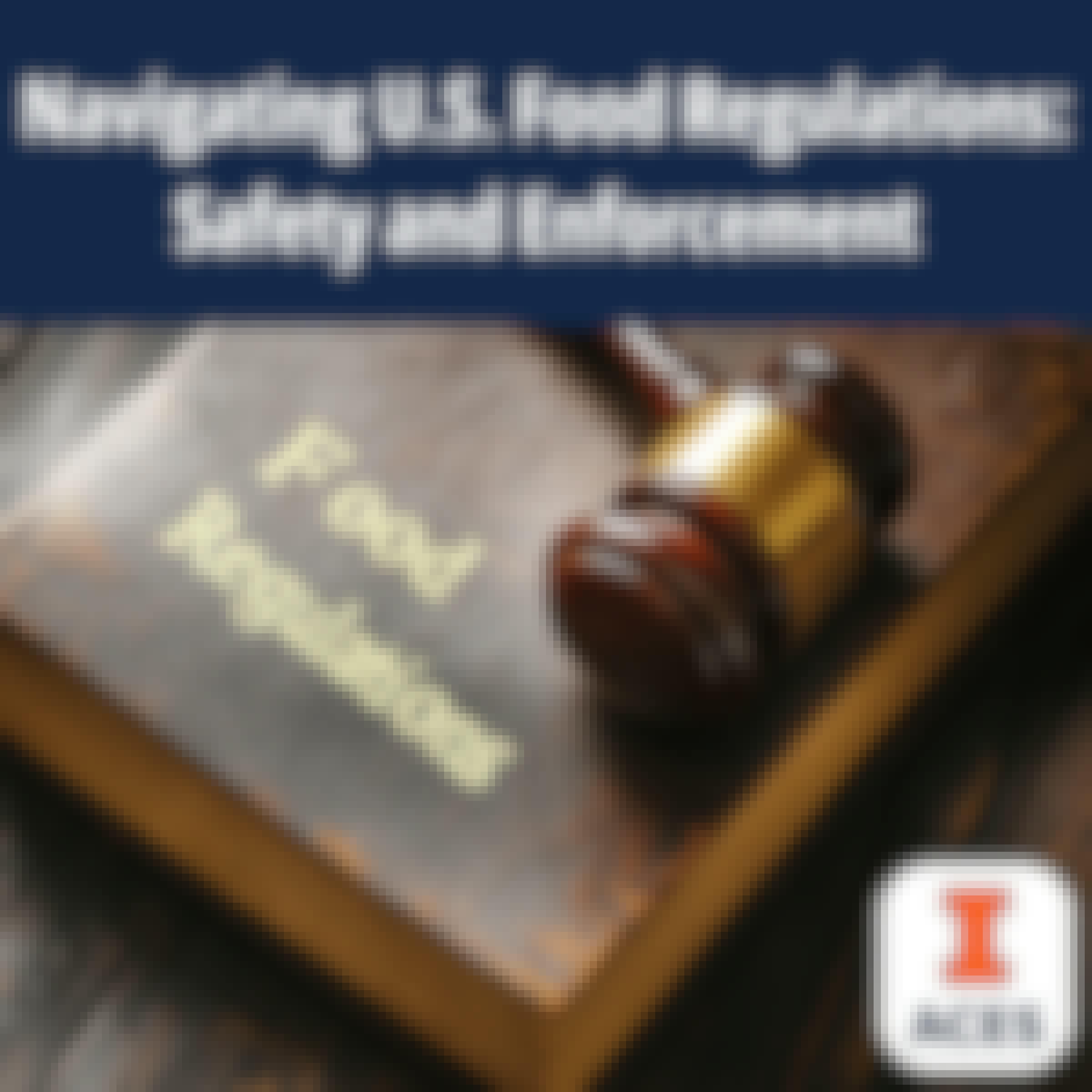 Status: Free TrialFree TrialU
Status: Free TrialFree TrialUUniversity of Illinois Urbana-Champaign
Skills you'll gain: Good Manufacturing Practices, Legal Risk, Case Studies
4.4·Rating, 4.4 out of 5 stars7 reviewsIntermediate · Course · 1 - 4 Weeks
In summary, here are 10 of our most popular food science courses
- Personalized Nutrition, Policy, and Food Regulations: University of Illinois Urbana-Champaign
- Introduction to Cosmetic and Skincare Science: Olay
- Decoding Nutrition Labels: National Academy of Sports Medicine
- Industrial Biotechnology: University of Manchester
- Food Sustainability, Mindful Eating, and Healthy Cooking: Stanford University
- Agribusiness and Sustainable Food Production Economics: University of Illinois Urbana-Champaign
- Introduction to Environmental Science: Dartmouth College
- Science of Exercise: University of Colorado Boulder
- Introduction to Sensory Science: University of California, Davis
- Healthy and Sustainable Foods and Products: University of Michigan










